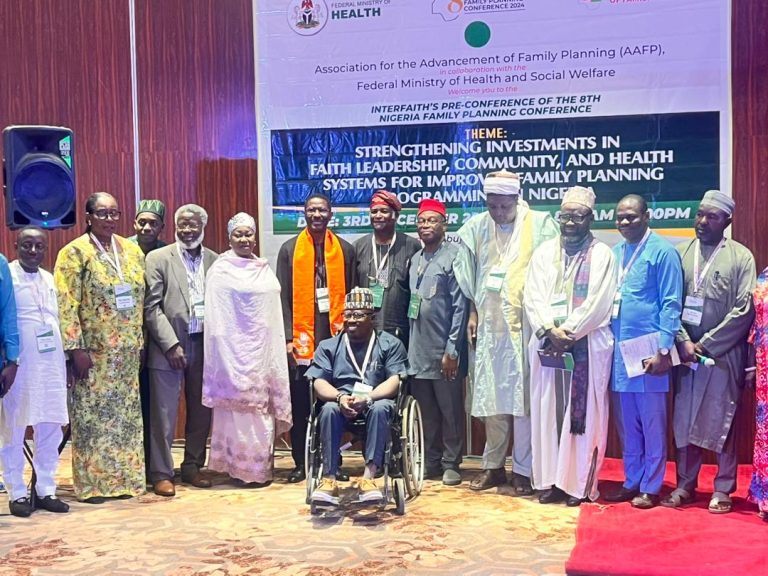ASHENEWS reports that religious leaders in Nigeria have been called upon to play a important role in promoting family planning to reduce maternal mortality rates across the country.
By Justina Asishana
This call was made during the Interfaith pre-conference session of the 8th Nigeria Family Planning Conference in Abuja.
The theme of the pre-conference, “Strengthening Investments in Faith Leadership, Community, and Health Systems for Improved Family Planning Programming in Nigeria,” underscores the importance of religious leaders in influencing health decisions.
Dr. Salma Ibrahim Anas, Senior Special Adviser to the President on Health Sector during a plenary session emphasized the significant influence of religious leaders on their communities.
She stated, “Religious leaders are needed to join hands in reducing maternal mortality, and the government is ready and committed to the course. Together, we can create a future where every woman will have access to family planning for productivity.”
Read Also: 8th Family Planning Conference kicks off in Abuja
Anas further highlighted the multifaceted nature of family planning, stating, “Family planning needs to stand out to address complex challenges and understand the socio-economic challenges as it entails improving educational standards, reducing poverty, security challenges and economic growth and development.”
Religious leaders present at the conference expressed their commitment to promoting family planning within their communities.
Representatives from the Christian Association of Nigeria (CAN) and the Grand-khaleefat Tijjanniyah Yoruba of the FCT and Northern Region pledged to incorporate family planning messages into their sermons and teachings.
Imam Junaid Abdulquadri, Grand-khaleefat Tijjanniyah Yoruba in the FCT and Northern Region, noted, “We will work at addressing religious and cultural barriers in the demand generation and uptake of modern family planning at the community.
“Constant training will win more spiritual minds about the advocacy of family planning. Faith leaders should be able to analyze and expatiate situations of family planning.”
The conference participants, including Dr. Kunle Omotosho, Dr. Dele Abegunde, Dr. Yusuf Nuhu, and Dr. Oyeniyi Samuel, underscored the collective effort required to reduce maternal mortality and increase awareness about family planning, particularly among men.
The role of religious leaders in health especially family planning
Religious leaders in Nigeria play a crucial role in their communities, especially in shaping health-related behaviors.
The religious leaders often hold significant moral authority which can influence people’s beliefs and practices and they can interpret religious texts to promote or discourage certain health practices, such as family planning.
They can also mobilize their communities to support health initiatives, to this end, they can help break down cultural and religious stigmas associated with certain health issues, such as sexual health and family planning.
The religious leaders can also create safe spaces for people to discuss sensitive health topics by collaborating with health organizations to develop and implement health programs and advocating for policies that promote health and well-being.
Religious leaders play key role in providing can spiritual counseling and support to individuals and families facing health challenges especially through prayers.


